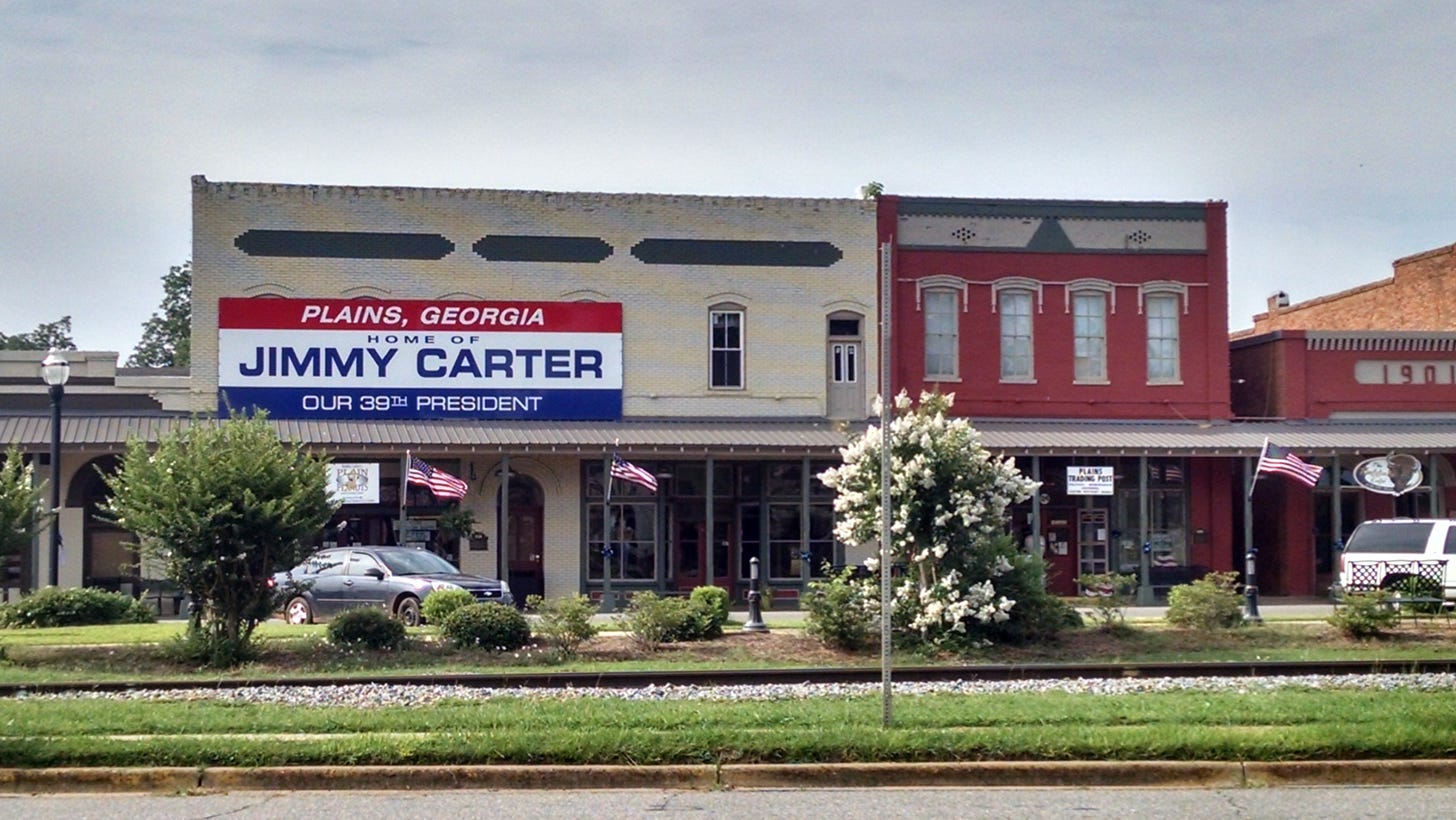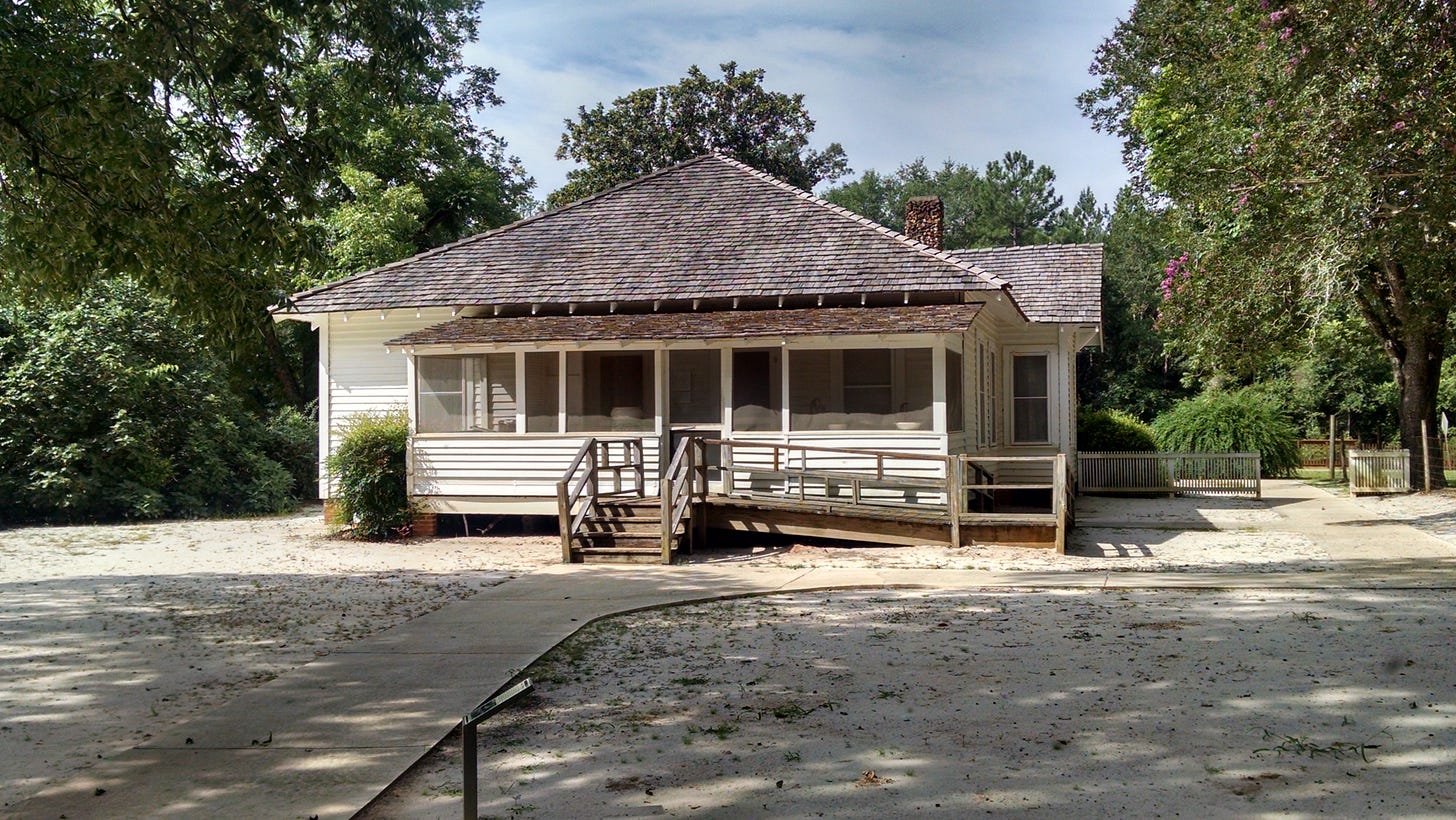In 1924, Calvin Coolidge was president. Two years earlier, Warren Harding had been the first president to speak on the radio. Television didn’t exist, never mind computers and the internet. Commercial airline travel wasn’t yet a thing. The Great Depression and World War II were still in the future.
That’s the year Jimmy Carter was born, on October 1 in Plains, Georgia.
Tomorrow, Carter turns 100. He will be the first president in American history to reach that milestone.
Seven years ago, during a road trip, my family drove through Plains and visited Carter’s boyhood home and farm.
We happened to be the only visitors at that particular moment and the National Park Service rangers were so friendly and gracious. One of the rangers even took my sons, who were seven and nine at the time, into the Carter family garden and helped them pick some corn. That garden, which was there when Jimmy was a boy, is now maintained as part of the Jimmy Carter National Historical Park. Most of the crops are donated to local schools or charities, we were told, but at the time some of it was still used by the Carter family. Anyway, my sons are in high school now but they still remember that visit and the chance to pick corn in Jimmy Carter’s garden.
Plains is a small town, but there is actually a fair amount to see associated with the former president, from the Carter home and farm to the 1976 presidential campaign headquarters in the old train depot. There is also a museum and visitor center in the former Plains High School, which Jimmy and Rosalynn Carter attended, and the Billy Carter Gas Station Museum.
Carter has had perhaps the most impactful post-presidency of any former president in American history. A few of his post-presidential accomplishments include:
Carter founded the global Guinea Worm Eradication Program in 1986, when 3.5 million people in Africa and Asia suffered from the parasitic infection. The number of human cases in 2023 was down to 14! The Los Angeles Times and NPR looked at Carter’s work to eradicate the plague of Guinea worm.
Carter has been a longtime supporter of democratic elections, and through the Carter Center helped pioneer the concept of election observation to ensure the legitimacy of democratic contests. In this way, he supported efforts to promote democracy in more than 125 elections across 40 nations. It was in part for this work that Carter won the 2002 Nobel Peace Prize.
The Carters have also been a supporter of Habitat for Humanity since 1984, volunteering on countless homebuilding projects over the years. During that time, Habitat for Humanity has constructed more than 4,000 new homes for needy families.
If you’re interested, here are a few other retrospective pieces from various media outlets on Carter and his life:
Jimmy Carter Approaches the Century Mark, Eclipsing His Presidential Peers, in the New York Times
Jimmy Carter at 100: A power-playing loner from the farm to the White House and on the global stage, by the Associated Press
Peanut farmer to President: Jimmy Carter's unprecedented path into politics and beyond, in USA Today
Jimmy Carter’s Life in Photos, on History.com
Jimmy Carter, America's oldest living president ever, turns 100, a CBS News interview with Carter’s grandson, Jason
Jimmy Carter turns 100: 7 longevity habits of the oldest living president, at Today.com
Finally, a star-studded concert and tribute to Jimmy Carter will be broadcast on his 100th birthday and available online
Photos: All photos by Bob Riel
See more Travel Photos of the Week here.





President Carter was in office when I was still very young. As a young kid not knowing much about the world, I didn’t particularly like him. I have come around to being amazed by the man he is and the things he has accomplished.